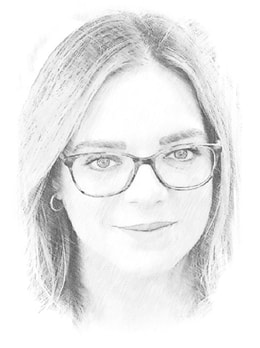world leaders
vladimir putin
 Sarah Riccardi-Swartz
Sarah Riccardi-Swartz
In April 2022, Georgia gubernatorial candidate Kandiss Taylor, who ran on a “Jesus, Guns, and Babies” platform, and who would eventually lose her bid the May primary but refused concede, held a rally in which she proclaimed, “We are the church! We run this state.” A few weeks later, failed 2020 GOP congressional candidate for the state of Delaware, Lauren Witzke, in an interview with The American Journal, part of the Infowars streaming family, noted that, “The Church makes up Russia. It’s kinda like their state religion,” before going on to proclaim that “he [meaning Putin] is the greatest ally for Christians.” (Witzke, by the way, worked informally for Taylor’s fading campaign.) Two women: both Americans; both desiring the unification of church and state; both pledging support to different political projects to meet their ideological goals; both nationalists; both Christians.
Christian nationalism is often seen as part of the American project, linked intimately to white nationalism, racism, and history of Christian domination and American exceptionalism. The examples of this in action are endless, as Andrew Whitehead, Samuel Perry, Philip Gorski, Anthea Butler, and so many other scholars have pointed out. However, Christian nationalism is not constrained by borders or geography. In considering the global formations of religio-racial or ethnic nationalism, I want to think about the connections between white Christian nationalism in the United States and Russia. I suggest we can better understand the transformations occurring in global politics and religion by examining the networks of ideology that link Christian nationalism in the United States with current forms of Russian nationalism that we see expressed by Putin and the Russian Orthodox Church.
In February of 2022, when Vladimir Putin announced a military operation in Ukraine, he proclaimed that “Since time immemorial, the people living in the southwest of what has historically been Russian land have called themselves Russians and Orthodox Christians.” This comment followed the Russian president’s declaration that Ukraine was not just a neighbor state, it was and is, according to him, “an inalienable part of our own history, culture and spiritual space.” In that one speech, Putin justified Russian nationalism and decried Ukrainian nationalism, using religious language. Religio-nationalism is a driving ideological force in Russia’s justification of state violence. While Putin has already laid bare how post-Soviet Russian Nationalism is tied to ideas about Holy Rus’ and the geopolitical project of Russkii Mir, I also see it as a form of Christian nationalism with a similar impulse towards purity, patriarchy, and propaganda that we see in the United States among white Christian nationalists.
--Sarah Riccardi-Swartz; Seventh Biennial Conference on Religion and American Culture; June 2022
Christian nationalism is often seen as part of the American project, linked intimately to white nationalism, racism, and history of Christian domination and American exceptionalism. The examples of this in action are endless, as Andrew Whitehead, Samuel Perry, Philip Gorski, Anthea Butler, and so many other scholars have pointed out. However, Christian nationalism is not constrained by borders or geography. In considering the global formations of religio-racial or ethnic nationalism, I want to think about the connections between white Christian nationalism in the United States and Russia. I suggest we can better understand the transformations occurring in global politics and religion by examining the networks of ideology that link Christian nationalism in the United States with current forms of Russian nationalism that we see expressed by Putin and the Russian Orthodox Church.
In February of 2022, when Vladimir Putin announced a military operation in Ukraine, he proclaimed that “Since time immemorial, the people living in the southwest of what has historically been Russian land have called themselves Russians and Orthodox Christians.” This comment followed the Russian president’s declaration that Ukraine was not just a neighbor state, it was and is, according to him, “an inalienable part of our own history, culture and spiritual space.” In that one speech, Putin justified Russian nationalism and decried Ukrainian nationalism, using religious language. Religio-nationalism is a driving ideological force in Russia’s justification of state violence. While Putin has already laid bare how post-Soviet Russian Nationalism is tied to ideas about Holy Rus’ and the geopolitical project of Russkii Mir, I also see it as a form of Christian nationalism with a similar impulse towards purity, patriarchy, and propaganda that we see in the United States among white Christian nationalists.
--Sarah Riccardi-Swartz; Seventh Biennial Conference on Religion and American Culture; June 2022


